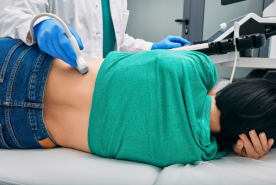December 14, 2017
What Gender May Have To Do With CKD
Millions of people around the world have chronic kidney disease (CKD), which can affect anyone, no matter their age, gender, race, or ethnic background. Some research has shown that the risk for CKD is slightly greater in women than in men - 14% women versus 12% men.1
UTIs and Kidney Infections Are More Common in Women
Urinary tract infections (UTIs) lead to nearly 10 million healthcare visits each year and, if not treated early, the germs can travel up to the kidneys and cause a worse type of infection, called pyelonephritis (pie-yeh-low-nef-right-us). UTIs and kidney infections are more common in women and the risk increases in pregnancy.
Join the NKF Blog Newsletter
Get inspirational stories and kidney disease resources delivered to your inbox every month. You'll gain practical insights and expert advice to help you better understand and manage your kidney health no matter where you are on your kidney journey. Subscribe today.
Women Have Added Risks for CKD
Women's health is unique. One thing we know for certain is that women of child-bearing age face different problems than men when it comes to kidney disease. Women with CKD are generally discouraged from using “the pill” as a birth control method due to a greater chance for an increase in blood pressure and blood clots that can make kidney disease worse. Women with CKD may have more problems with pregnancy, causing increased risk to the mother and the child. Even women without CKD may be at risk during both pregnancy and birth because of pre-eclampsia and other problems that increase blood pressure and put a strain on the kidneys. Prenatal care is therefore crucial for all pregnant women for this very reason. Pre-eclampsia and high blood pressure when pregnant can lead to kidney failure and the risk for CKD later in life.
Learn more about Pregnancy with Kidney Disease. As always, talk to your doctor about your risk for chronic kidney disease and get your kidneys tested with these two simple tests.


















